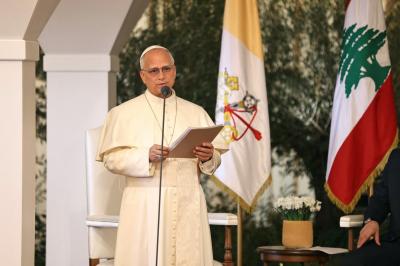Despite legal and financial hurdles, the Lebanese government remains committed to disbursing the monthly salary increase for active-duty and retired military personnel at the end of July. This follows a law passed by Parliament granting a monthly allowance of 14 million LBP to active members and 12 million LBP to retirees—covering roughly 200,000 military personnel. Yet this commitment faces a complex financial and economic challenge after the State Council annulled a government decision to impose a tax on fuel, which was intended to generate direct revenue to cover these raises.
A Constitutional Obligation Without Permanent Funding
The judicial decision freezing the fuel tax—issued after an appeal by Lebanese Forces leader Samir Geagea and several tourism unions—created a funding gap that was supposed to be filled by the new levy on gasoline and diesel. The tax had already generated more than $30 million before being struck down—precisely the amount needed to finance the military raises, according to Finance Ministry sources.
Yet despite the absence of a sustainable funding source, the state insists on paying the allowance, arguing that the law does not tie it to revenues. The International Monetary Fund, however, is less than pleased, stressing the need to link any increase in expenditures to clear financing sources—so as not to repeat the 2017 salary scale crisis, which burdened the treasury without adequate coverage.
Searching for Alternatives: Gasoline Once Again Pays the Price
With a direct fuel tax off the table following the State Council’s decision, the government is now studying a restructuring of the levy—reducing it on diesel while increasing it on gasoline. The aim is to placate industrialists and lower the cost of generators and winter heating. A consumption tax of up to 150,000 LBP per gasoline can is likely to be imposed without returning to Parliament, as the government considers it an administrative decision rather than a legislative measure—even though it remains subject to legal interpretation and further challenges.
Economic and financial expert Dr. Jihad Hoteit warns against the government’s continued reliance on temporary funding solutions without securing sustainable revenues. “Imposing a consumption tax on gasoline to finance military allowances is a superficial fix that does not address the root of the problem,” he says.
“What we’re seeing recalls the 2017 salary scale episode, when raises were approved without structural reforms—widening the deficit and weakening confidence in public finances. A bankrupt state cannot keep spending for electoral or populist purposes without tying this to deep reforms, such as reclaiming public maritime property and halting waste and tax evasion.”
The Law and the Reality: Mismanagement or Deliberate Overreach?
Notably, in this case, the government—judging by numerous precedents—may not comply with State Council decisions, even though Article 93 of the Council’s law stipulates the mandatory enforcement of its rulings under penalty of liability. Constitutional expert Dr. Adel Yammine points out that the Council’s stay of execution is binding, even if temporary pending a final judgment. Yet there is no clear legal mechanism forcing swift implementation—raising a deeper issue over respect for the rule of law.
Legally, Yammine emphasizes that the State Council’s ruling “is binding on the government as it is a judicial decision issued by a competent body reviewing administrative decrees.”
“Failure to implement the decision constitutes a direct violation of Article 93 of the State Council’s law and places the administration under legal and moral accountability. If the government refuses to comply with administrative court rulings, this undermines one of the pillars of a state governed by law and institutions.”
Maritime Property and Closed Doors
Despite its limited options, the government still refuses to resort to reforms capable of securing revenues—such as collecting dues from illegally occupied maritime properties, which are valued in billions of pounds. This remains a politically sensitive file that the authorities avoid opening. The stance raises serious questions about the lack of political will to pursue genuine reforms, in contrast with repeated recourse to citizens’ pockets—especially through fuel pricing, which directly impacts the daily lives of Lebanese people, including the military themselves.
Risk of a 2017 remake
The Lebanese government is currently racing against time between its legal obligations to the military and pressure from the IMF and international community to secure fair financial coverage. In the absence of sustainable alternative solutions, the crisis will likely deepen—unless the state acts to open long-ignored files and implement structural reforms that restore confidence in public finances, moving away from temporary consumption-based measures that only reproduce crises.
At the end of July the raise will be paid. But the question remains: who will bear the cost?
Please post your comments on:
[email protected]
 Politics
Politics













